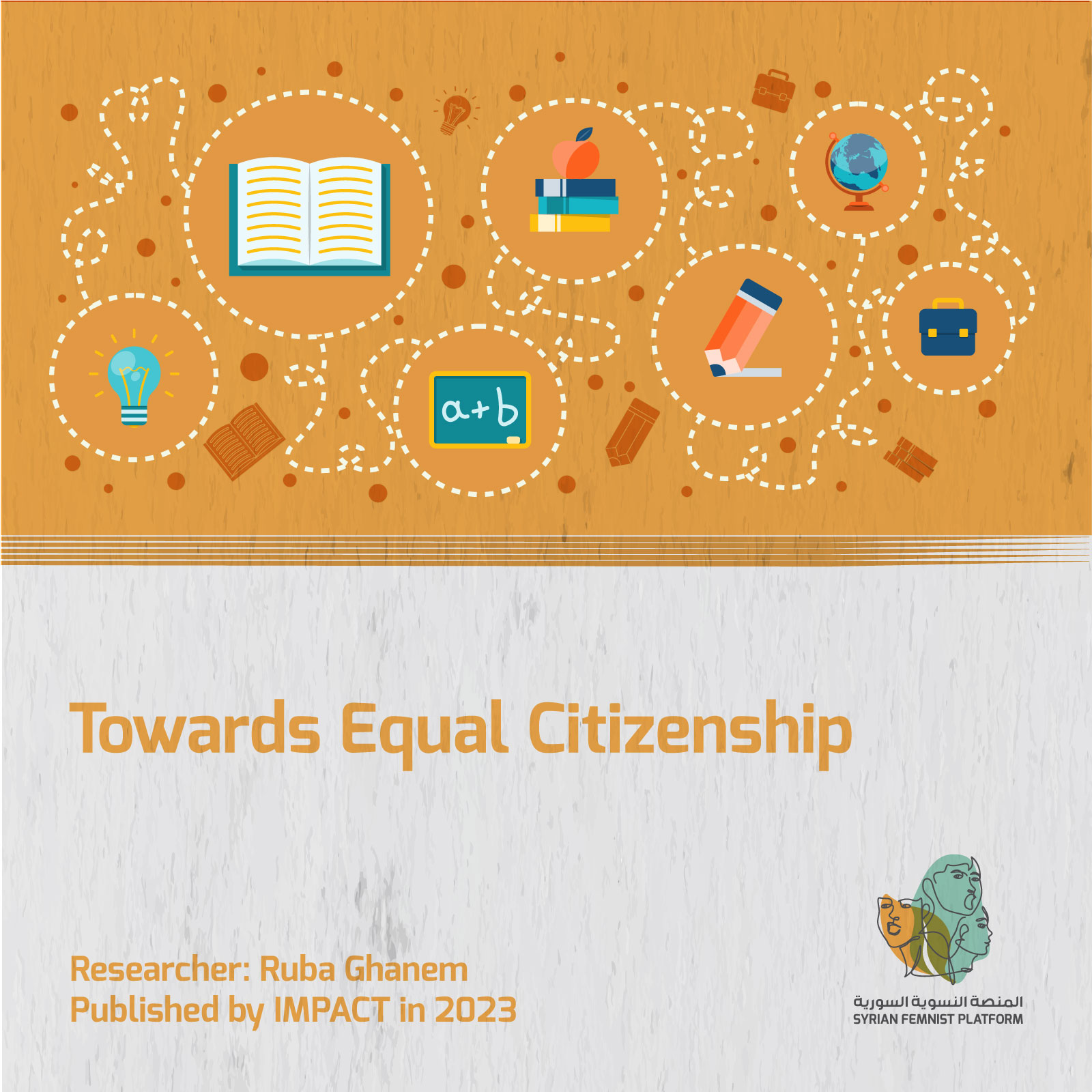Advancing Policies Aligned with Women’s Rights and Gender Equality in National and International Political Processes
Researcher: Ruba Ghanem
Published by IMPACT in 2023
This collection of research and policy papers aims to present and open discussions on several topics, that are directly related to the work of Women-focused organisations in Syria, to enhance the participation of women activists and organisations in knowledge production, and to provide a basis for advocacy efforts.
Women focused organisations (WFOs) constitute a vital part of the Syrian civic space today, as their efforts can be seen in response to women’s’ needs and in advocating for women rights and priority issues on local, national and international levels. while operating in a contextually, operationally and socially challenging environment.
This collection of research and policy papers aims to present and open discussions on several topics, that are directly related to the work of WFOs in Syria, to enhance the participation of women activists and organisations in knowledge production, and to provide a basis for advocacy efforts.
More specifically, this collection of papers’ had been developed within the framework of IMPACT’s “fostering women-led spaces for change” project, which provides technical and thematic support to several WFOs in different locations in Syria. The papers rely on input and participation of members of those WFOs as well as
other women activists, and cover topics that were identified as shared priorities for advancing women rights across Syria, from advocating for equal citizenship and political participation on a national level, to understanding and combating violence against women in the different areas of control.
First, Rouba Ghanem presents an analysis of the legal context in Syria, and the level of constitutional and legal gender quality; and provides a set of detailed recommendations for advancing gender equality in Syria.
On a local level, Mohammad Aljseem writes about the shifts in gender roles of women in southern Syria, and investigates the forms of violence associated with these shifts. In a related paper, he provides a set of policy and practical recommendation to enhance protection and combating violence against women.
Similarly, Eva Atfa looks into northeast Syria and analyses the forms of violence against women in the private and public sphere. She provides as well a set of recommendations for better protection against violence against women in this specific context.
Furthermore, Mouna Khaity provides a feminist analysis of patterns and causes of gender-based violence (GBV) in northwest Syria, and its relation to power relations and conflict environment. In a separate paper, she examines the opportunities and challenges of protection strategies in Northwest Syria.
Additionally, the collection include a paper developed by IMPACT field team, that looks into the impact of climate change and pollution on women and girls in Syria, including as well a set of recommendations to combat those effects.
And lastly, a paper by Jelnar Ahmad that looks into the impact of the February 6th earthquake on WFOs in Syria, and provides an overview assessment of response to affected women.
Acknowledgment:
IMPACT would like to thank all partner organisations, as well as participants in the networking sessions and interviews that were used for the production of this paper, for their contribution and helpful insights. Names and organisational affiliations are obscured for privacy and security reasons.
We would like also to thank DocStream team for their efforts in translation and proofreading.

